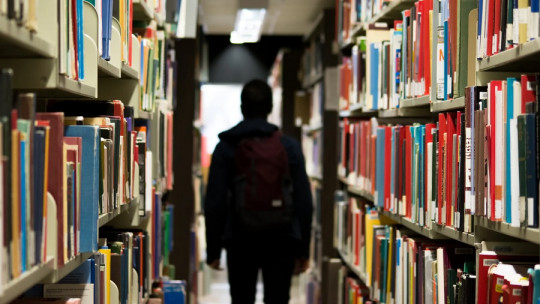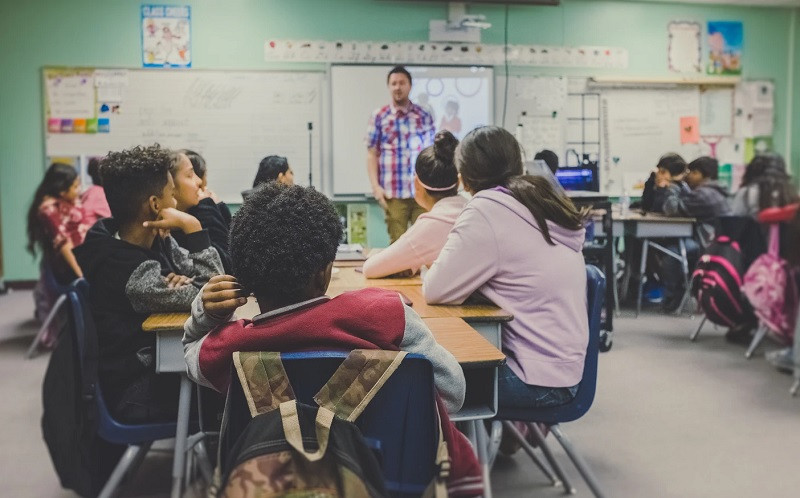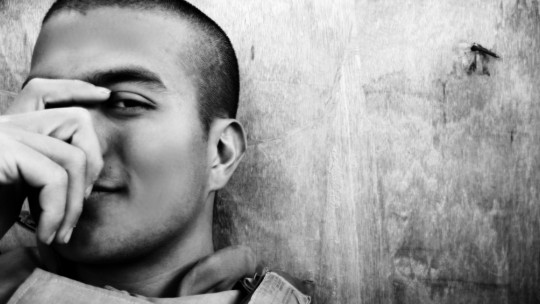
Social phobia is a problem that has repercussions in different spheres of the life of the person who suffers from this condition.
On this occasion, we are going to focus on the effects it may have on the educational performance of individuals suffering from social anxiety disorderlisting some of the main repercussions and delving into them to understand them in greater detail.
What is the impact of social phobia on educational performance?
In order to properly analyze the impact of social phobia on educational performance, it is necessary that we begin by focusing on this pathology in order to have a theoretical basis on which to move forward. Only in this way will we be able to understand the scope of this issue.
Social phobia, or social anxiety disorder, is a psychopathology fundamentally characterized by generating significant pictures of anxiety symptoms, triggered by the fear that the individual suffers when exposed to a social situationthat is, an event in which the person feels evaluated in some way by others, even if it is only their perception.
The pathology that hides behind the question of the impact of social phobia on educational performance is the most frequent within the block of anxiety disorders, and shares part of its symptomatology with other ailments such as avoidant or anxious personality disorder. .
Some of these symptoms would be increased heart rate, sweating, trembling, blushing, and even nausea and vomiting, in those people who experience it with greater intensity. This symptomatology can trigger a panic attack, in which the fear of the social situation and its consequences becomes totally unbearable for the subject.
Some of the situations that can trigger this torrent of symptoms are actions as common as attending a crowded place where the person has to interact with others, speaking in front of an audience, or even suddenly meeting a person you know. Therefore, it is not surprising that the impact of social phobia on educational performance will be significant.
Feeling observed by others, whether this action is a reality or the subject’s own perception, and even the anticipation that this is going to happen or may happen, can act as a trigger for all those anxiety-producing symptoms that we have listed. Furthermore, it must be taken into account that social phobia It can be generalized, where any social situation would trigger it, or specific.which would only be activated in certain contexts.
Once we know the main features and characteristics of this disorder, we can move on to analyze the impact of social phobia on educational performance, thus focusing on a very specific scenario, which is academic.

Characteristics of students with social anxiety
When we explore the question of the impact of social phobia on educational performance, what we are referring to is the group of children who suffer from anxiety in the school context and therefore, one of the consequences is that will experience difficulties in achieving some of the academic objectives.
In this case, social anxiety could be specific, activating only in the school setting, although it may also be the case that social anxiety is generalized and the academic context is only one of those that activate it, although these are the effects in this case. specific area that concerns us on this occasion.
First of all, it should be noted that the majority of children experience or have experienced fear for various reasons, many of them in the educational context. However, they usually tend to disappear without any major problem, but A small group of them maintains these fears, suffering them with a high intensity and continuing with them when they become adults..
It would be that small group that we would be focusing on in order to analyze the impact of social phobia on educational performance. In order to identify them, the criterion would be a period of four weeks in which the student has continuously experienced anxiety symptoms when attending school or institute, or participating in any of the activities that occur there.
These types of scenarios can be simply attending class, having to speak in front of their classmates or teacher, participating in games or activities. during recess or physical education classes, taking assessment tests, or some other. Depending on the case, the student with social phobia could experience fear in any of these situations, in a combination of several, or even in all of them.
Effects of social anxiety disorder on educational performance
When we talk about the impact of social phobia on educational performance, we must be aware that this can be considerable, since a child who suffers from a serious case of social anxiety in the school context may have different levels of his life affected, which we are going to review below to know them in detail.
1. Academic objectives
The first of affectation is also the most obvious, and refers to the academic objectives that the minor has throughout the school year. If the student experiences fear simply by attending school, completing assignments in the classroom, or taking exams or other assessment testsyour results are going to be affected.
A person, in this case a child, who is experiencing anxiety symptoms, will have difficulties achieving a performance equal to that of an individual who is calm or at least does not have those levels of activation. Logically, this is a generalization, without taking into account the specific variables of each case, such as IQ or other factors that can predict academic performance.
Therefore, the academic results themselves will be the first of the consequences that social anxiety can trigger in students who suffer from it.
2. Social skills
Continuing with the impact of social phobia on educational performance, another factor that may be compromised is the social skills of these students. And childhood and adolescence are learning stages, not only academic, but in all aspects, and one of them is social skills themselves.
By feeling fear in anticipation of a social situation, the affected children and adolescents will not be able to carry out the necessary interactions with their peers in which these skills are learned and improved, because even if they have a theoretical basis, they will lack those practical situations in which these tools are consolidated.
Furthermore, this lack of social skills can act as a vicious circle, making the subject, aware of this limitation, feel even more insecure in a social situation, such as those that occur in the school environment, which in turn It would make it difficult to acquire those skills and therefore, in the next situation, the fear could be greater.
3. Physical and mental health
It is evident that by suffering from a psychopathology such as social anxiety, one’s own mental health is already being compromised. But in addition, as there are several anxiety symptoms that are physical in nature, physical health itself can also deteriorate. Discomfort caused by palpitations, rapid breathing, tremor, or difficulty sleeping are examples of symptoms that can affect health..
That is why when we refer to the impact of social phobia on educational performance, we cannot also forget the dimension of health and well-being and the student, which could be some of the factors deteriorated by this issue and which therefore It would have to be repaired immediately.
4. Future socioeconomic level
The last of the levels of impact that we are going to analyze is that of the future socioeconomic level, a factor that is not altered directly, but rather indirectly. Specifically, it is a possible consequence that is given by the decrease in academic performance that we saw in the first point..
And the fact is that a student who has poor academic performance, in this case caused by his social anxiety, will have fewer possibilities of accessing higher education, which generally gives access to better-paid jobs. Of course, this is an assessment in general terms, and not all cases have to be like this.
These would be the main levels of the impact of social phobia on educational performance that we can mainly observe.








